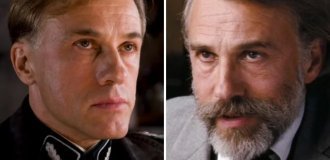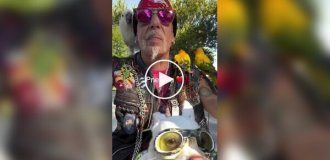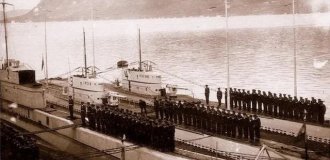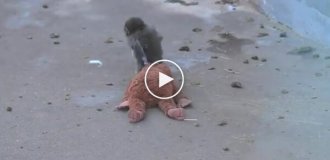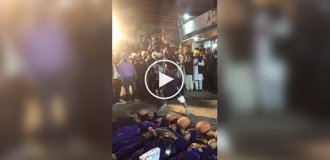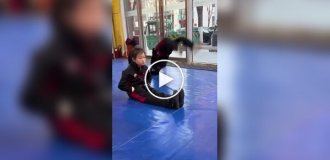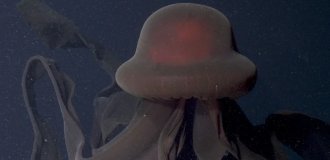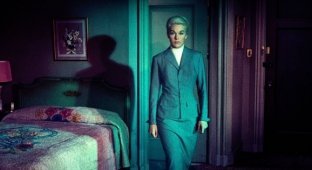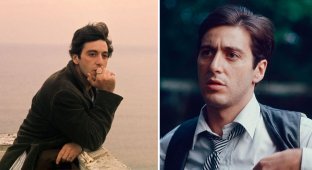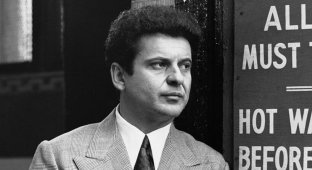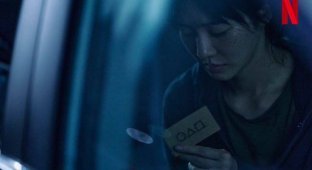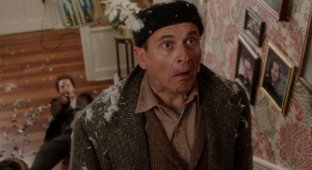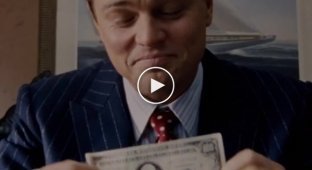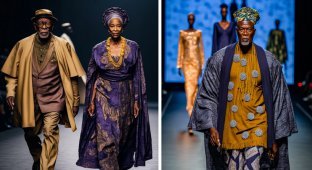Al Pacino - a non-Hollywood star of Hollywood (17 photos)
The ruthless, deceptively quiet Michael Corleone from The Godfather, the uncontrollable gangster Tony Montana from Scarface, the blind retired lieutenant colonel Frank Slade from Scent of a Woman, the infernal John Milton from The Devil's Advocate, the vulnerable and sincere Francis from Scarecrow" - all these film images, as well as six dozen more roles in cinema and theater, were created by Al Pacino. 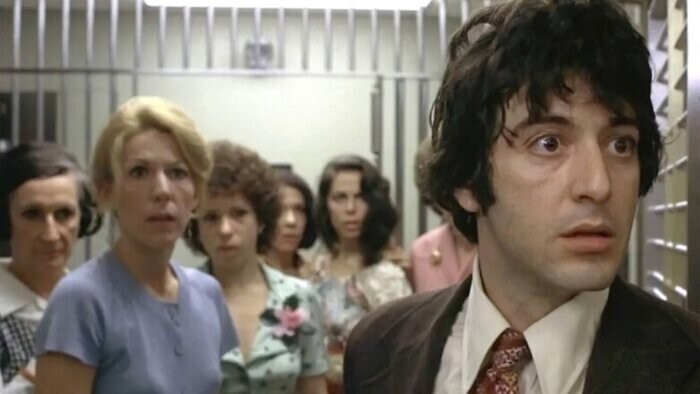
"Dog Afternoon"
He is the pride of American cinema, but it is better not to apply the epithet “Hollywood” to him - he might get offended.
100% Italian
In 2019, Pacino loudly reminded himself of himself by playing in two big films – “The Irishman” by Martin Scorsese and “Once Upon a Time in Hollywood” by Quentin Tarantino. Scorsese admitted that he had been trying for half a century to get an actor in his film (for example, there was an unrealized project for a film about Modigliani) and finally achieved his goal.
He and Pacino belong to the phenomenal cinematic generation of Italian-Americans, which gave the world Francis Ford Coppola, Brian De Palma, Robert De Niro, Joe Pesci, Danny DeVito and even Sylvester Stallone. Pacino elaborates: “Most Italian-Americans are half Italian. I'm not that case. In me you get Italian in its purest form.” 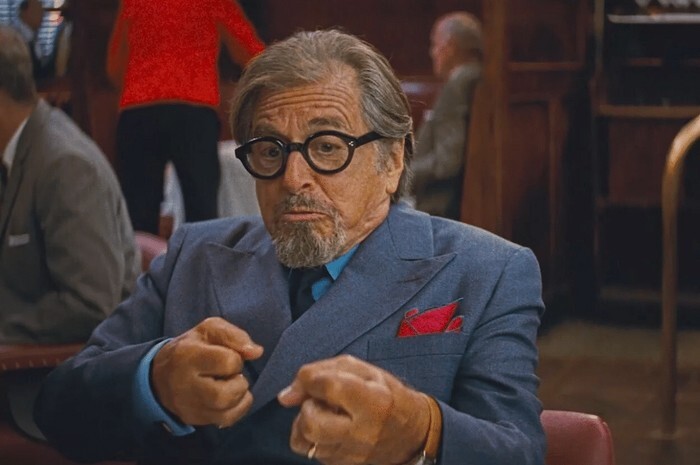
"Once Upon a Time in Hollywood"
Despite his Southern temperament, Pacino has developed a reputation for being private, especially to the press, leading some to conclude that he has a bad temper and a big ego. They also say that he is obsessed with work and quarrelsome - after all, despite affairs with many women, he has never been married. But remarks from people who know Pacino closely, including his former companions, indicate the opposite. “Strength emanates from him, as from a person completely devoid of egocentrism,” said actress Jill Clayburgh, who lived with Pacino for five years at the beginning of his career. “Work is more important to him than any relationship, but he is a truly good person,” says Martha Keller, with whom Pacino also had a long affair.
Pacino's secrecy is a consequence of his rejection of the Hollywood lifestyle. “I'm an actor, not a star. Stars live in Hollywood in houses with heart-shaped swimming pools,” he said ironically. Pacino has always considered himself primarily a theater man who takes on a film if he understands that he can do something good. And he stayed away from Hollywood, living in his simple New York apartment and not even thinking about moving to California, closer to the lair of show business. But it was impossible to hide from fame. 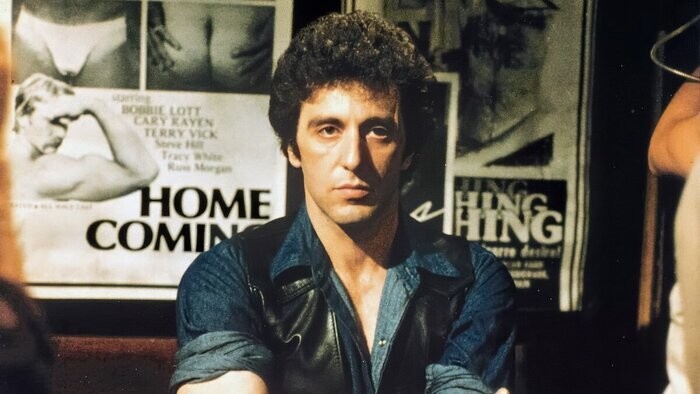
"Wanted"
Jester
Alfredo James Pacino was born in New York, in East Harlem. His mother Rosa was 20 years old and his father Salvatore was only 16. Both were children of Italian immigrants from Sicily. In 1942, Salvatore went to the front, and Alfredo and Rosa moved to her parents in the South Bronx. His mother was a difficult person who suffered from nervous illnesses and depression all her life, and Pacino described the Bronx of that time as an American melting pot in miniature: every conceivable nationality lived together in this area.
Soon after his father returned from the war, Pacino's parents divorced. Alfredo's main educators were his grandparents. He adopted his legendary workaholism from his grandfather. “Any work was a joy for him. And I, too, always wanted to work hard,” recalls the actor. 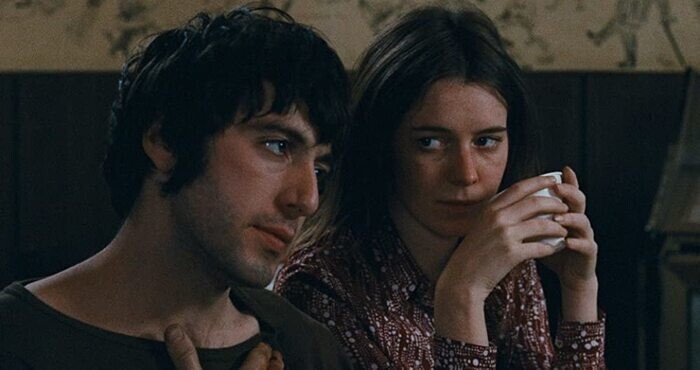
"Panic in Needle Park"
Pacino grew up as a small, fragile child with a strange dream for his size - to become a baseball player. He did not take his acting abilities seriously, although Alfredo showed them quite early: at the age of six, he amazed his relatives by portraying the final scene of the film “The Lost Weekend” in front of them. Everyone was surprised not so much by little Pacino's performance as by the material chosen by the child - Billy Wilder's film about a writer who drinks himself to drink.
At school, he entertained his classmates and annoyed teachers with his clowning, for which he received the nickname Actor. He entered art school, but only because it was the only place where he was accepted due to poor academic performance. He still associated acting with buffoonery. “When we started going through the Stanislavsky system and I heard that you need to live your role, it seemed crazy to me. Where's the fun? – Pacino recalled later.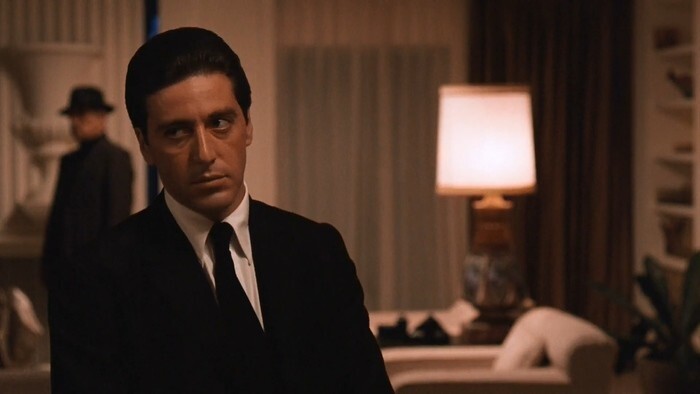
"The Godfather 2"
Fracture
At the age of 14, his consciousness was turned upside down by the production of Chekhov’s “The Seagull.” “It was a traveling troupe, and the play was in a huge movie theater in the Bronx. There were about 15 people in the audience. It was a stunning experience,” says Pacino. Then for the first time he seriously thought about the acting profession.
But he had to leave school: from the age of 15 he lived alone, since his mother’s family left New York, and he had to look for work. Pacino changed a lot of jobs, from shoe shiner to housekeeper, but he didn’t forget about acting. At the age of 18, in the studio of Herbert Berghof, he met Charlie Laughton, a man who became his teacher, friend and drinking companion. He taught the young man to understand and love literature: Shakespeare, Dostoevsky, Balzac, Henry Miller. 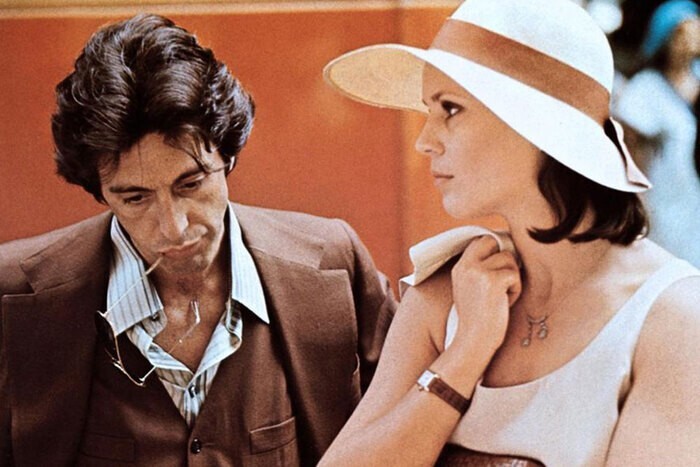
"Bobby Deerfield"
In the early 1960s, Pacino's mother and grandfather died one after another. He takes the loss hard, goes crazy: he drinks a lot, wanders, lives on the street. Having survived the crisis, Pacino entered the Lee Strasberg studio - an acting school that worked according to the Stanislavsky method. Before him, Marlon Brando, James Dean, Paul Newman, and later Robert De Niro, Meryl Streep and other big stars studied there.
Strasberg became a second father to Pacino. Under his influence, he abandoned all other activities and concentrated only on studying acting. “When Lee talked about being an actor, he elevated you to incredible heights,” says Pacino. 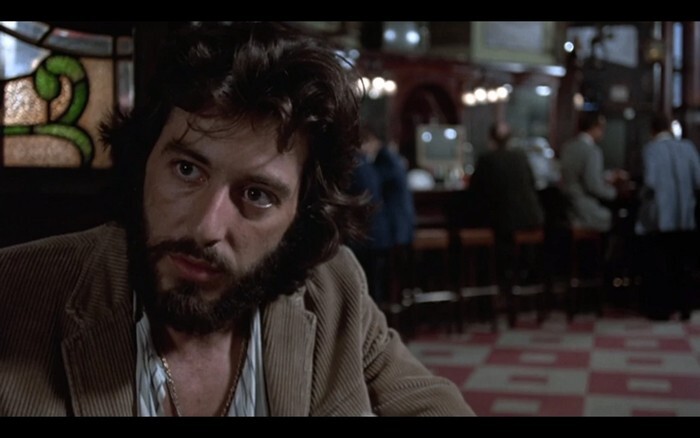
"Serpico"
"Scared me to death"
In the mid-1960s, he wrote and staged comedy plays in cafes in New York's bohemian and hippie Greenwich Village. Then he gets into more serious theatrical productions: “Rise and Sing”, “Hurray, America”.
On stage, Alfredo experiences a feeling that finally determined his life: “There I was able to speak for the first time. Through the mouths of my characters, I said things that I always wanted to say, but could not. It was a great liberation experience. I have found freedom." 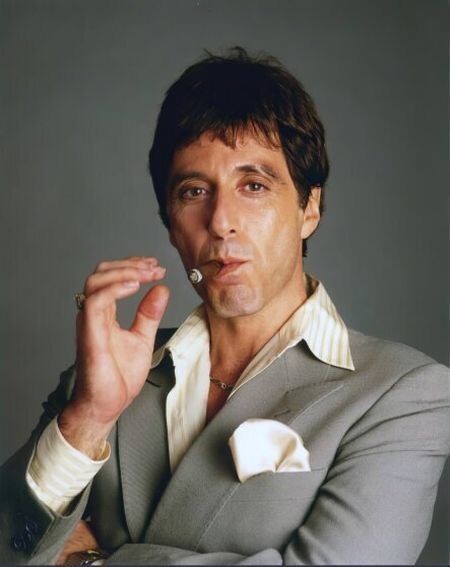
"Face with a scar"
The catastrophically shy Alfredo radically transformed during the game. Director Erwin Brown, who saw Pacino in the play Indians Need a Bronx in 1968, recalls: “There was so much fury in him that it destroyed that mysterious boundary between the stage and the audience, which protects the latter’s comfort. He scared me to death."
In 1969, Pacino received a Tony Award, the theatrical equivalent of an Oscar, for his performance in Don Petersen's Broadway production of Does a Tiger Wear a Tie? Pacino gets an agent, Martin Bregman, to whom he, by his own admission, owes all his success. Film people pay attention to the promising artist. 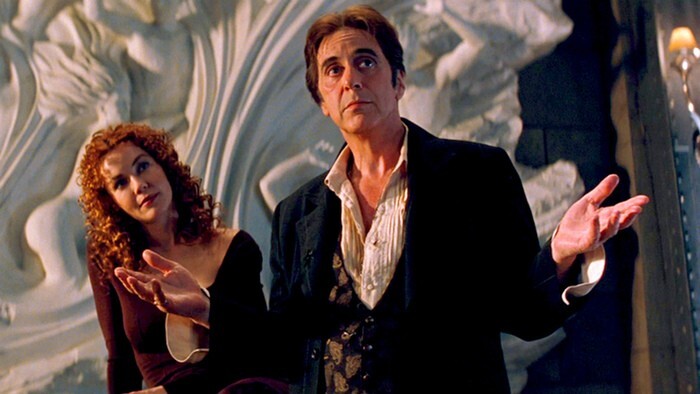
"Devil's Advocate"
Pacino's screen debut was a small episode in the film I, Natalie (1969) by Fred Coe. Choosing his first big role, he rejected 11 offers, eventually settling on the drama Panic in Needle Park (1971) about the life of New York drug addicts.
Director Francis Ford Coppola could be seen on the set of Panic: he came to observe the work of the young actor, rumors about whose performing power were already circulating around New York. 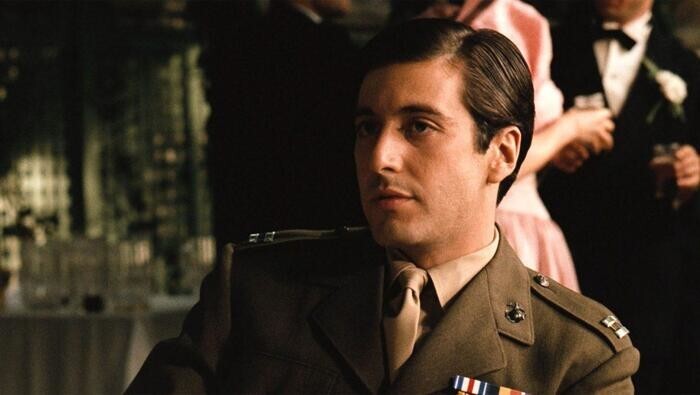
"Godfather"
Quiet Don
Soon he made Pacino an offer that he could not refuse - the role of Michael Corleone in the upcoming film adaptation of Mario Puzo's The Godfather. Alfredo agreed, but there was one problem: the studio wanted to see Robert Redford, Jack Nicholson, anyone but an unknown person in Hollywood in his place. Just like Marlon Brando in the title role seemed to the producers a disastrous choice, because at that time he was considered written off. But Coppola insisted on both candidates, playing a huge role in the careers of Brando and Pacino. The first was able to emerge from oblivion, and the whole world learned about the second.
Pacino claimed that only the director was happy to see him on the set. Meanwhile, James Caan, who played Sonny, later recalled: “He was the weird guy in the corner. But everyone knew that this guy would soon become one of the greatest talents in our industry." 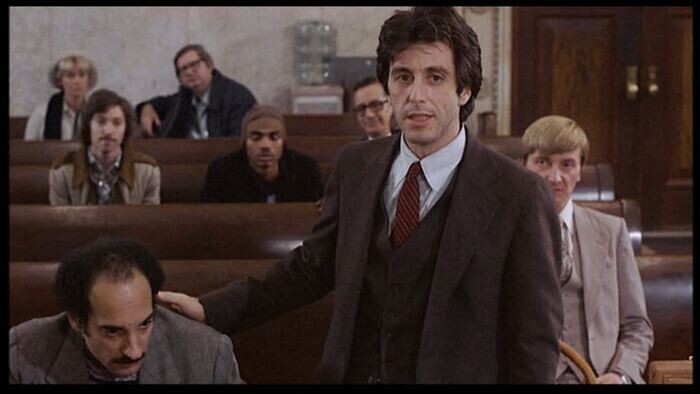
"Justice for all"
As already mentioned, Pacino suffered from shyness, but not when it came to his work. In an amazing way, he separated himself from his acting gift: “I don’t like to talk about myself, because sometimes it seems that all this is not my merit, but my talent.” When, after the release of The Godfather (1972), he was nominated for an Oscar for his supporting role, Pacino was offended by this nomination and did not attend the ceremony. This was not vanity, but a demand for artistic justice. Which other aspiring artist is capable of doing something like this?
To participate in “The Godfather Part II” (1974), Pacino had to persuade him. He feared that it would be an overtly commercial project, capitalizing on the success of the first film, and Coppola needed all his powers of persuasion to get Pacino. Now the actor considers his role in this film one of the best in his life. 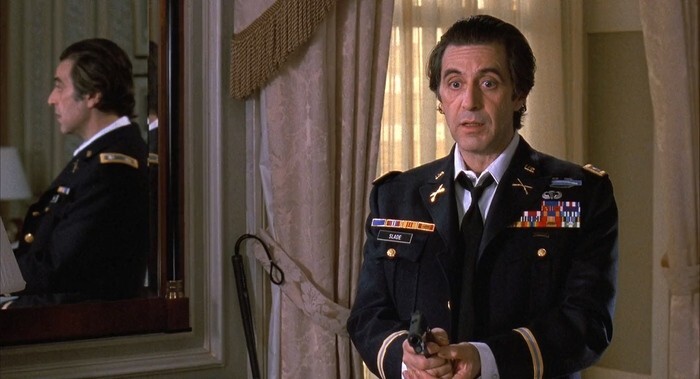
"Scent of a Woman"
In the second "The Godfather" the two most serious Italian-Americans in the history of cinema met: Pacino and Robert De Niro. True, they did not have common scenes, because De Niro played Vito Corleone, the father of Pacino's character, in his youth. They got to work as a duet only 20 years later in Michael Mann’s Heat, and it was truly a fight: not only of the policeman and the gangster they played, but also of the actors themselves, longtime friends and competitors.
“Bob and I are friends,” says Pacino, “we went through similar experiences. There was a time in my life when it was very important for me to communicate with a person with whom I could identify.” 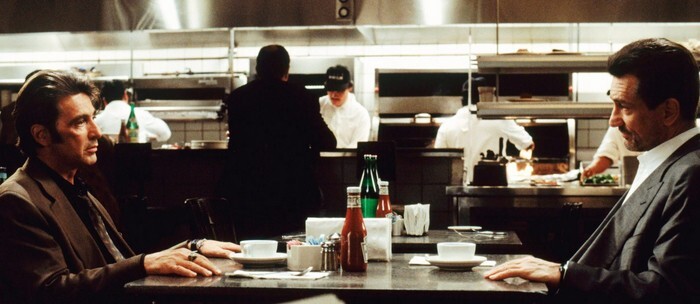
"Fight"
De Niro jokes: “People compare us, try to pit us against each other, to quarrel. But I don't think comparisons are appropriate. I'm obviously taller and more of a leader. But to be honest, Al is probably the best actor of our generation. Except maybe me."
From a cannon
Fame fell on Pacino and crushed him. “In the 1970s, I felt like I had been shot out of a cannon: I became very famous in a matter of minutes,” the actor recalls. He relieved stress with alcohol and soon discovered that he was ready for a rehabilitation clinic. Fortunately, the passion for work turned out to be stronger than the craving for the bottle. 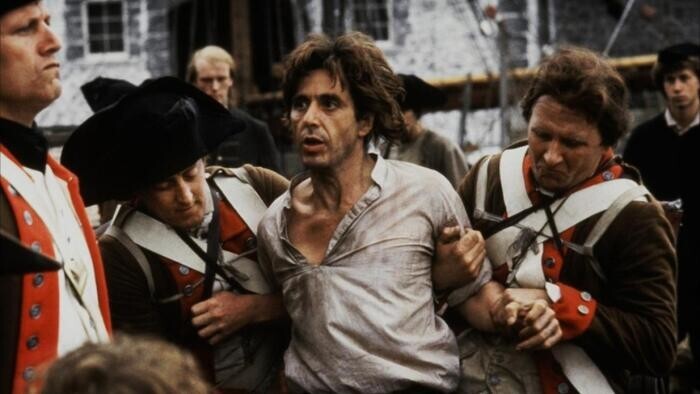
"Revolution"
Pacino chose his roles meticulously and carefully: the fighter against police corruption Serpico (1973) in the film of the same name, the incompetent bank robber in Dog Day Afternoon (1975), the inspired lawyer in Justice for All (1979). The American Film Academy followed his successes and in the 1970s nominated Pacino for an Oscar for almost every film. But he received the award only in 1993 for his role in “Scent of a Woman.”
Scrupulousness did not save the actor from controversial projects. In 1977, critics trashed the film “Bobby Deerfield,” an adaptation of Remarque’s story “Life on Borrow,” and in 1980, the New York gay community took up arms against “The Wanted.” In this film, Pacino’s hero investigated murders among homosexuals, and, according to gays, this very environment was shown in the film as so vile and evil that it aroused only homophobia in the audience. Pacino shrugged his shoulders, saying that from a dramatic point of view the film was great. In 1985, he received the award for “Revolution,” a historical film about the American War of Independence, and here he did not object, but instead quietly began his own low-budget project “Local Stigmatist,” which was incredibly liked by critics who wrote that it was possible , Pacino's best work. The general public saw this film only in 2006, when it was released on DVD. 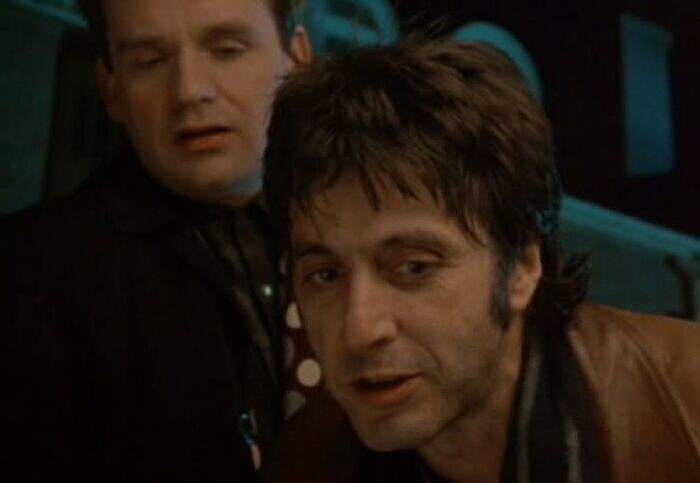
"Local stigmatist"
Cinematic failures allowed Alfredo to take a break with a clear conscience and return to his favorite theater productions. When he surfaced after that, it was always a hit, like Scarface (1983) or Sea of Love (1983). The role of gangster Tony Montana became one of the most recognizable in Pacino’s career, and it made a particular impression on rappers, many of whom still imitate the hero of “Scarface.”
A sea of films
After Sea of Love, Pacino began a period of stable success that continues to this day. If in the 1970s he starred in eight films, in the 1980s - only five, then in the 1990s, when the actor crossed the threshold of his 50th birthday, there were already fourteen of them, in the 2000s - eleven, and in 2010 - x - one and a half dozen.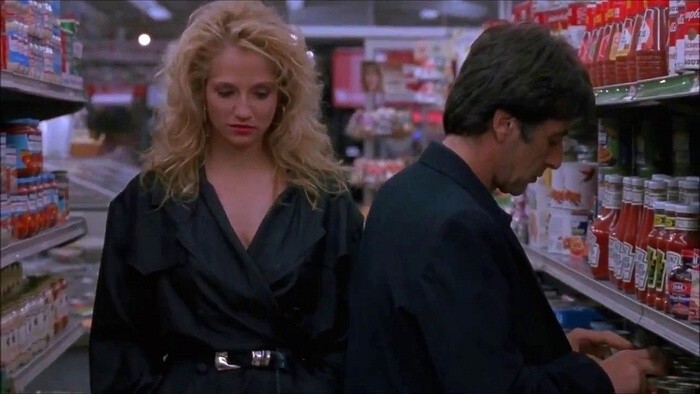
"Sea of Love"
In 1989, Jana Tarrant, an acting teacher, gave birth to Pacino's daughter, Julie Maria. Julie is now a film producer and director. And in 2001, he became the father of twins, Anton and Olivia, from actress Beverly D'Angelo.
Pacino also proved himself as a director. Chinese Coffee (2002) is based on the play by Ira Lewis, which he starred in on Broadway in the early 1990s. In 2011, Pacino presented in Venice the semi-documentary film Wilde's Salome, which two years later was re-edited into the feature film Salome. 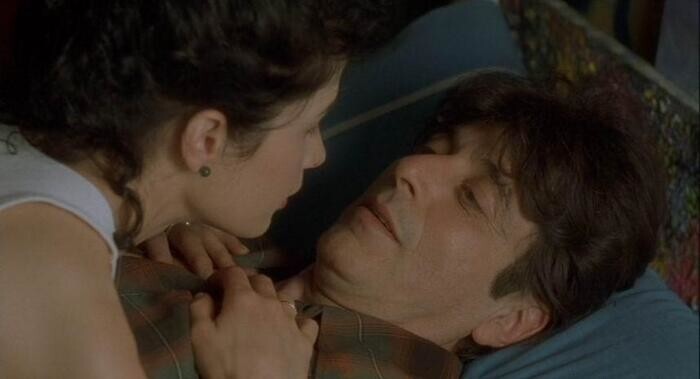
"Chinese coffee"
He also managed to fulfill his long-time dream of making a movie based on Shakespeare. In 2004, he played Shylock in The Merchant of Venice, directed by Briton Michael Redford.
Al Pacino inspires admiration not only among viewers, but also among his professional colleagues. For them, he is an example of total devotion to art. Young and self-confident actors cannot comprehend that the gray-haired master continues to take acting lessons several times a week. It would seem, where else to strive? Obviously, there is somewhere to go.
